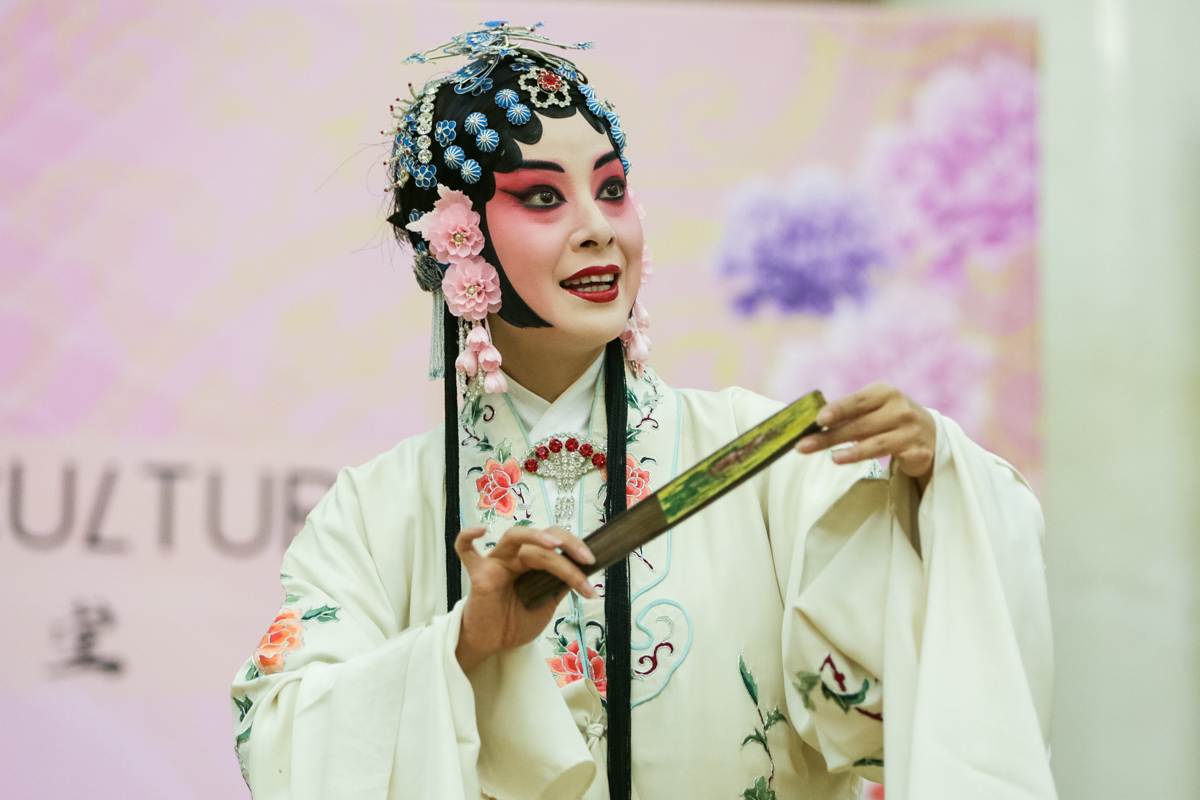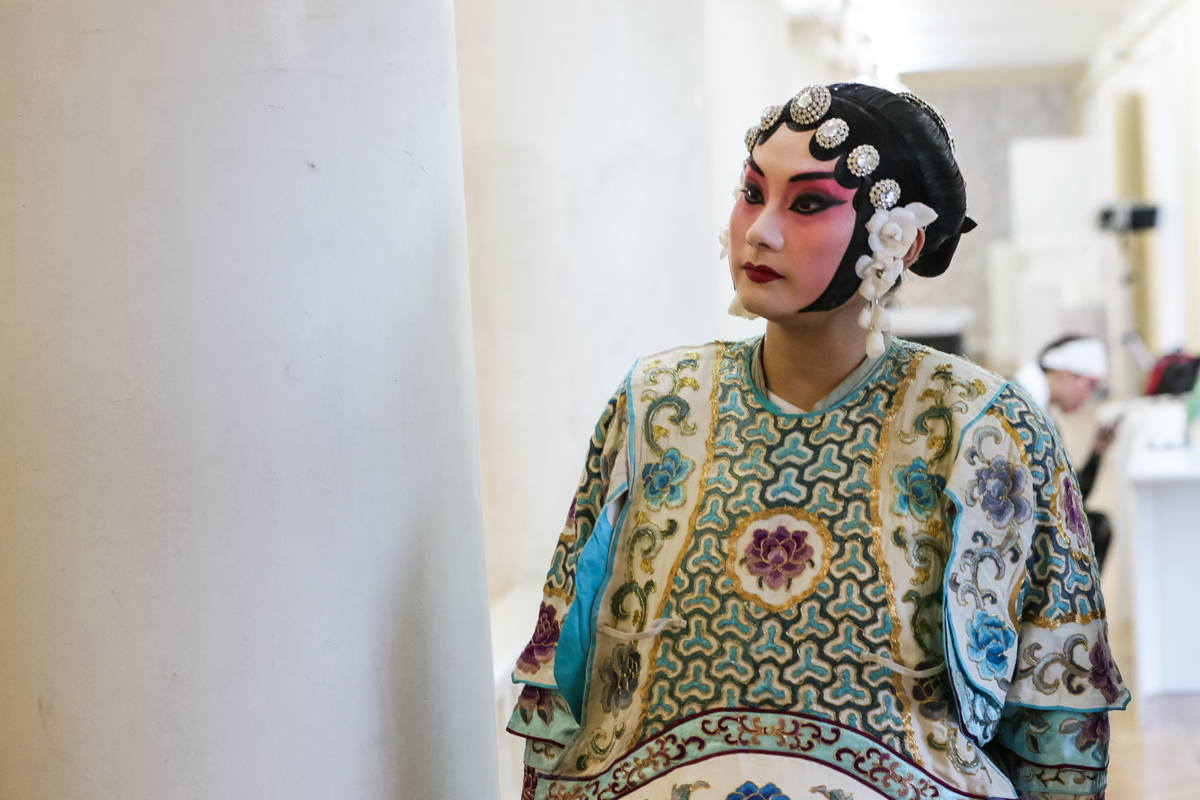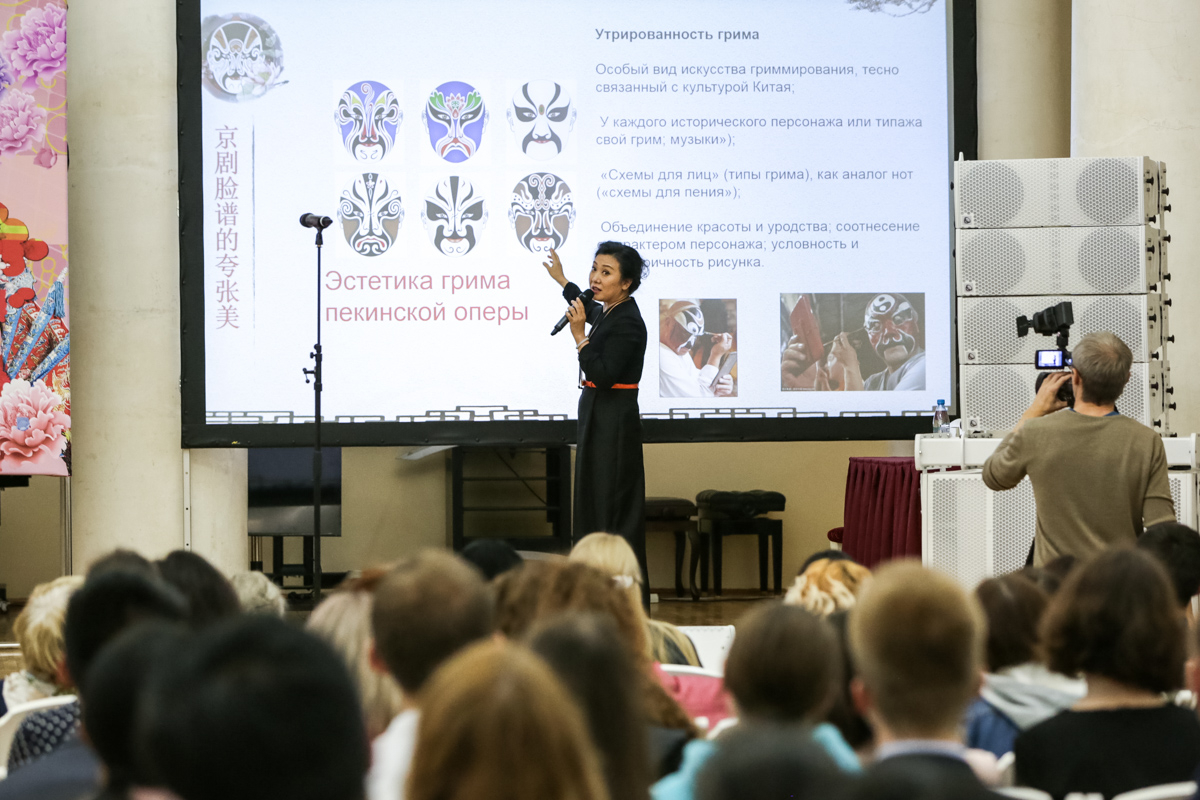“The Divine Rhythm of the East” at SPbU
St Petersburg University has hosted a lecture by an internationally famous actress of the Beijing Opera Yuan Huiqin.
Her performance “The Divine Rhythm of the East” tells about traditions, evolution and imagery of the ancient art of the Beijing Opera. The event was organized by St Petersburg University, Office of the Cultural Connections Abroad of the Ministry of Culture of the People’s Republic of China, and China’s Consulate General in St Petersburg.
At the beginning of the event, the Vice-Rector for Academic Affairs and Methodological Support Marina Lavrikova told that cooperation with China was an overarching priority with us.
“SPbU has a number of Russia-China research projects, over 40 educational programmes with a specific focus on China, and about 1,300 students from China”, — said Marina Lavrikova
We are also cementing our cultural ties, says the Vice-Rector. The researchers in Oriental Studies regularly translate contemporary Chinese literature and make them available to Russian readers.
Deputy Council General also welcomed the guests: “Today we have lots of Chinese students who study at SPbU here. I hope that those who study here are well aware that they have a unique chance to study at the University: they study hard, make new friends among Russian students and support friendly relationships between our nations”.
The honoured actress of the Chinese National Theatre of the Beijing Opera, member of the Parliament of China, winner of the theatrical awards Yuan Huiqin opened the event by telling that she was in love with her guests in Russian. She told that this was the phrase she learnt first in Russian, and it was a great honour to give performance in Russia
The Beijing Opera is a unique phenomenon in theatre world that brings together opera, ballet, pantomime, tragedy, comedy, and circus.
“This theatre system is closely associated with the Chinese director Mei Lanfang who made the Bejing Opera one of the best in the world, along with the Stanislavsky system and Epic Theatre of Bertolt Brecht”, — said Yuan Huiqin.
Scenery, costumes, makeup, gestures are indispensable part of the Beijing opera. With form, colour of the costumes, ornaments and patterns, they create a refine and sensitive aesthetics of the ancient theatre art.
Music is a unifying element in the Beijing Opera: a Chinese two-string fiddle makes a melody and percussion creates the rhythm. Traditionally, the Beijing opera is accompanied by so-called “divine melodies”: erhuang that is calm and slow motives to reflect elegiac mood, sipi that creates uneven and irregular rhythm, and sipi lushui that resembles the flow of the waters.
The vital part of the Beijing Opera is conventions that reflect the beauty of life on the stage.
The conventions can be explained as follows: how to open the door that doesn’t exist?
At the lecture, the actors of the Beijing Opera performed famous scenes from the popular performances. Among them was The Peony Pavilion, Triple Diversion, Goodbye My Hetaera, Theft of the Emperor’s Horse, and Women Generals of the Yang Clan. When the performance had come to an end, everyone could try costumes and makeup, and see a master-class on how to move in the Beijing Opera.
The event was broadcast to the millions of people in China by the CCTV and Xinhua.





